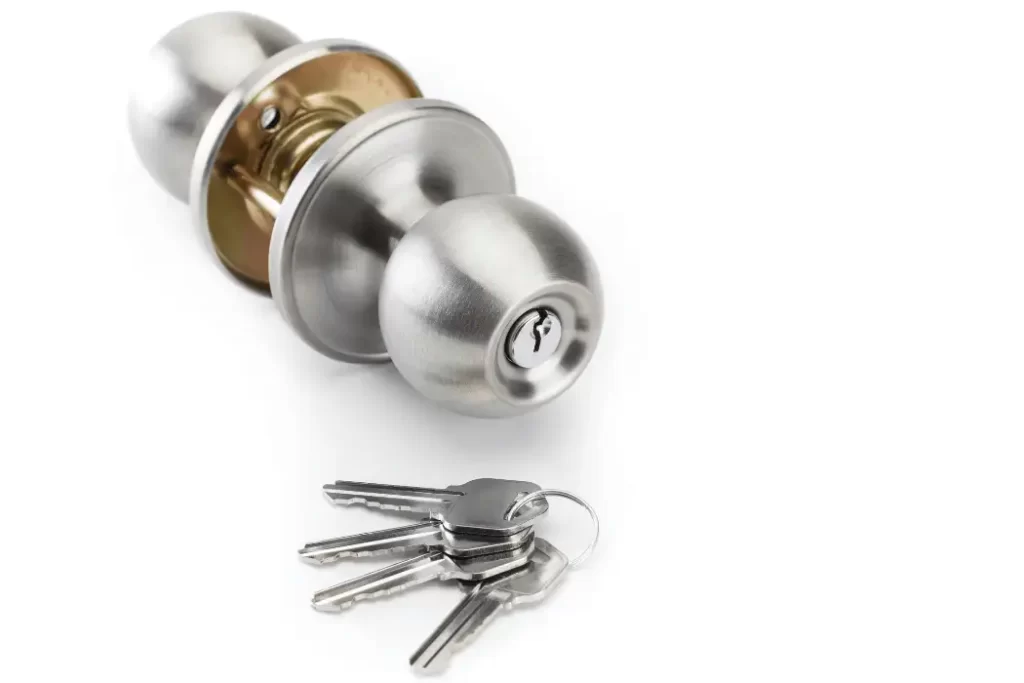Locksmithing is an ancient trade that has been around for centuries, providing crucial services in securing properties and possessions. From basic locks to advanced security systems, locksmiths are skilled professionals who have the expertise to work with a wide range of lock types and mechanisms. If you’re interested in becoming a locksmith or looking to hone your locksmithing skills, here are some tips and techniques to help you master the craft.
Acquire the Right Tools
Just like any other trade, having the right tools is essential for locksmithing. Invest in high-quality tools that are durable and reliable. Some basic tools that every locksmith should have in their toolkit include lock picks, tension wrenches, key extractors, plug spinners, and a variety of different types of locks, such as pin tumbler locks, wafer tumbler locks, and disc tumbler locks. It’s important to regularly maintain and update your tools to ensure they are in good working condition.
Find out more home renovation tips here.

Learn the Different Types of Locks
Locks come in various types and designs, and each type requires a different approach to unlock or repair. Familiarize yourself with the different types of locks, including pin tumbler locks, wafer tumbler locks, lever locks, cam locks, mortise locks, and electronic locks, among others. Understand how each type of lock functions, the common issues they may face, and the appropriate techniques to fix them. This knowledge will enable you to handle a wide range of lock situations with confidence and efficiency.
Study Locksmithing Techniques
Locksmithing involves a variety of techniques, from lock picking and lock bumping to impressioning and decoding. These techniques require precision, skill, and practice. Study each technique in detail, understand the principles behind them, and practice regularly to develop proficiency. Start with basic techniques and gradually progress to more advanced ones as you gain experience and confidence. Keep yourself updated with the latest techniques and advancements in the locksmithing field through workshops, seminars, and online resources.
Develop Problem-Solving Skills:
Locksmithing often involves encountering unique and challenging situations that require problem-solving skills. Being able to assess a lock’s condition, diagnose the issue, and come up with a solution quickly and effectively is a crucial skill for a locksmith. Develop your problem-solving skills by practicing on different types of locks, experimenting with different techniques, and learning from your mistakes. Sharpen your analytical skills and develop the ability to think critically to troubleshoot and resolve lock-related problems efficiently.
Learn About Security Systems
With advancements in technology, modern security systems have become more complex and sophisticated. As a locksmith, it’s essential to have a good understanding of different types of security systems, including electronic locks, access control systems, CCTV systems, and alarm systems. Familiarize yourself with their components, operation, and potential vulnerabilities. Stay updated with the latest advancements in security technology to provide comprehensive solutions to your clients and stay ahead in the locksmithing industry.
Stay Ethical and Professional
Locksmiths often work with sensitive information and are entrusted with securing people’s possessions and properties. It’s crucial to maintain high ethical standards and professionalism in your work. Respect the privacy and confidentiality of your clients, adhere to legal and regulatory requirements, and provide honest and transparent services. Build a good reputation by delivering quality work, providing excellent customer service, and being reliable and trustworthy.
Gain Practical Experience
Locksmithing is a hands-on trade that requires practical experience to master. Seek opportunities to gain practical experience by working on different types of locks, practicing different techniques, and taking up challenging assignments. Join a locksmithing apprenticeship program or work under the guidance of an experienced locksmith to learn from their expertise.
The more hands-on experience you gain, the better you will become at locksmithing. Practice regularly to hone your skills, develop muscle memory, and improve your speed and accuracy. Work on a variety of locks, including different brands, models, and security levels, to familiarize yourself with the nuances of each type of lock. Learn how to troubleshoot and diagnose lock issues effectively, and develop efficient methods to solve them.
Stay Updated with Industry Trends
The locksmithing industry is constantly evolving, with new technologies, techniques, and trends emerging regularly. Stay updated with the latest industry trends through industry publications, forums, and online resources. Attend workshops, seminars, and conferences to learn from industry experts and stay abreast of the latest advancements in locksmithing. Keep an eye on changes in regulations and standards related to the locksmithing field to ensure compliance in your work.
Build a Network
Building a strong network can be immensely beneficial in the locksmithing industry. Connect with other locksmiths, security professionals, and industry organizations to expand your knowledge, learn from their experiences, and stay updated with the latest industry news. Join professional associations and forums to connect with like-minded professionals and participate in discussions and knowledge-sharing. Networking can also help you gain referrals and expand your customer base.
Develop Excellent Customer Service Skills
Customer service is a crucial aspect of any business, including locksmithing. Develop excellent communication skills and learn how to effectively communicate with clients, understand their needs, and provide solutions tailored to their requirements. Be patient, polite, and professional in your interactions with clients, and always strive to exceed their expectations. A satisfied customer is likely to recommend your services to others and can be a valuable source of referrals.
Practice Ethics in Marketing and Pricing
As a locksmith, it’s important to practice ethics not only in your work but also in your marketing and pricing. Avoid misleading advertising, exaggerated claims, or unethical marketing practices. Be transparent about your services, pricing, and any potential additional charges. Provide detailed and accurate quotes to your clients and ensure that your pricing is fair and competitive. Build trust with your clients through ethical marketing and pricing practices, and maintain long-term relationships based on mutual respect and trust.
Invest in Continuous Learning
Locksmithing is a constantly evolving field, and it’s important to invest in continuous learning to stay ahead. Stay updated with the latest advancements in lock technologies, security systems, and locksmithing techniques. Enroll in professional courses, workshops, and certifications to expand your knowledge and skill set. Stay curious and always be willing to learn and improve your locksmithing skills.
Conclusion
Mastering the craft of locksmithing requires a combination of technical expertise, practical experience, problem-solving skills, professionalism, and continuous learning. Acquire the right tools, familiarize yourself with different types of locks and security systems, practice different locksmithing techniques, and develop excellent customer service skills. Stay updated with industry trends, practice ethics in your work, marketing, and pricing, and invest in continuous learning to stay ahead in the locksmithing industry. With dedication, practice, and a commitment to excellence, you can become a proficient locksmith and provide valuable services to your clients.

